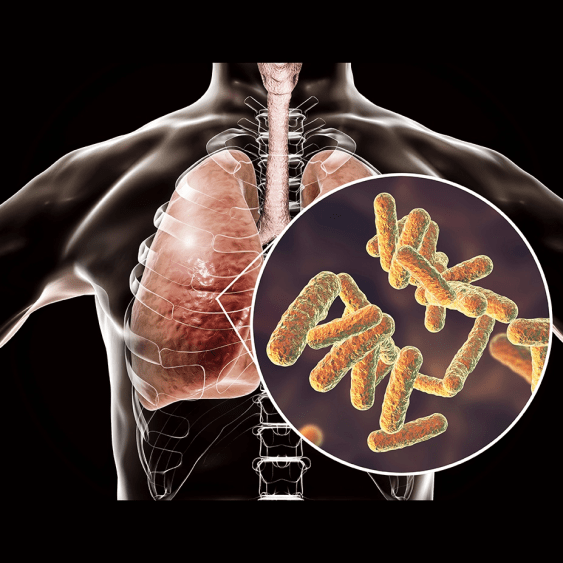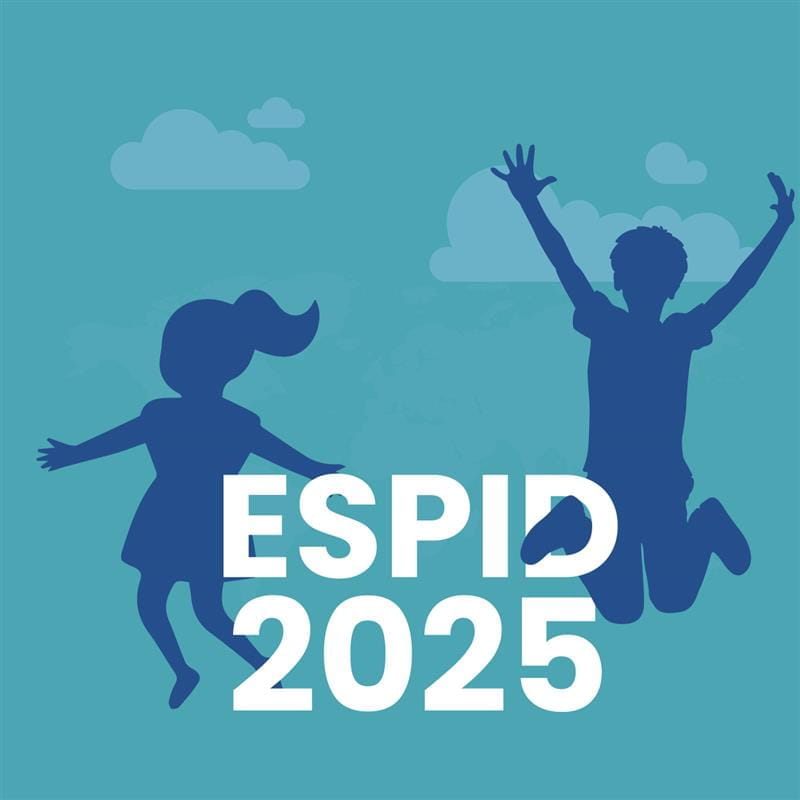ESPID 2025: Young ESPID Symposium 02: Dilemmas in Group A Streptococcal Infections
Diagnostics Assays in Infectious Diseases: Back to Basics
Speaker: Jethro Herberg (United Kingdom)
Introduction:
The prevailing pathogen-centric view in pediatric infectious diseases was questioned by Prof. Jethro Herberg (Imperial College London). It was emphasized that disease severity and outcome are often determined more by the host immune response, shaped by genetics and environment, than by the pathogen itself.
Case Discussions: Variable Presentations of Group A Streptococcus (GAS)
- Case 1: Severe pneumonia with empyema was observed in a 6-year-old girl. Despite effective antibiotic treatment and reduced inflammatory markers, persistent fever was noted, indicating a possible immunopathological basis.
- Case 2: Suspected rheumatic heart disease was identified in a 10-year-old girl with mitral regurgitation and no recent infection history, pointing to a classic post-infectious complication of GAS.
Disease Spectrum of Group A Streptococcus:
A continuum of GAS disease was outlined, ranging from colonization and superficial infections to invasive disease, toxic shock, and immune-mediated complications such as rheumatic heart disease, glomerulonephritis, and PANDAS (Pediatric Autoimmune Neuropsychiatric Disorders with Streptococcal Infections). The diversity in clinical outcomes was not fully accounted for by microbial virulence alone.
Post-Pandemic Surge in Invasive GAS:
A marked increase in invasive GAS and scarlet fever cases during 2022–2023 was documented following the easing of COVID-19 restrictions. This trend was attributed to lowered population immunity rather than the emergence of a novel virulent strain.
Decline in Pediatric Immunity: Biobank Antibody Findings
Lower anti-GAS antibody levels in children aged 3–5 years post-COVID were demonstrated through biobank sample comparisons (PERFORM vs. DIAMOND studies). Increased susceptibility to severe infections was linked to immunological naivety, not to microbial evolution.
Genetic Influence on Infection Outcomes:
Significant roles of host genetics in infectious disease susceptibility and outcomes were presented.
- The Danish adoption study revealed that infection-related mortality in biological parents predicted similar outcomes in adoptees.
- Meningococcal disease studies indicated a tenfold increased risk among siblings, influenced by both rare and common genetic variants.
Monogenic and Polygenic Contributions:
Rare monogenic mutations (e.g., TLR3 in herpes encephalitis, complement deficiencies in meningococcal disease) were shown to have strong effects. Common variants identified via GWAS were reported to exert modest but relevant influences on disease risk.
GWAS Insights in GAS Disease:
- In rheumatic heart disease, a significant association was identified at the immunoglobulin heavy chain locus, which is also implicated in Kawasaki disease and malaria.
- In invasive GAS, preliminary findings suggested associations with specific HLA alleles, underscoring the importance of antigen presentation.
Conclusion:
It was concluded that infection should be considered an inherited disease. While pathogens act as triggers, disease severity and progression are largely determined by the host’s immune framework, which is shaped by genetic and evolutionary factors.
Debate 1: Group A Strep Pharyngitis: How to Treat and for How Long?
Speakers: Amedine Duret (United Kingdom), Rebekah Bingham (United Kingdom)
Introduction:
The case of a child with a sore throat and a positive Group A Streptococcus (GAS) test was presented by Clinical Research Fellows Rebekah and Amedine at Imperial College London. The audience was assigned the role of a jury. Two central questions were posed: whether all GAS-positive children should be treated with antibiotics, and if so, for how long.
Prosecution Argument – Rebekah
A position advocating treatment of all symptomatic cases with 10 days of penicillin was taken.
- Disease Burden Highlighted
GAS was described as causing a wide spectrum of disease and being responsible for approximately 500,000 deaths annually, largely due to rheumatic heart disease. - Symptom Reduction Cited
A Cochrane 2013 review was cited, in which antibiotics were shown to reduce symptoms by one day and fever/sore throat by 50%. - Complication Prevention Emphasized
Antibiotic treatment was noted to reduce the risks of suppurative complications and rheumatic fever. - Transmission Control Stressed
Penicillin was reported to clear GAS in over 90% of cases within 24 hours, compared to 15% with placebo. - Expert Testimony Presented
- Prof. Sriskandan supported treatment to reduce illness duration and prevent complications.
- Dr. Tom Parks acknowledged uncertainties in current rheumatic fever rates and urged consideration of individual risk and antibiotic stewardship.
- Rationale for 10-Day Course Provided
Ten-day penicillin use was based on historical trials and still recommended by Canadian, US, and European guidelines.
Defense Argument – Amedine
A selective treatment strategy with a preference for shorter antibiotic courses was proposed.
- Swab-Only Diagnosis Questioned
It was stated that diagnosis should be guided by clinical scores (Centor/FeverPAIN), with testing advised only for high-score patients. - Support for Shorter Courses Cited
Guidelines from NICE, Scotland, and Germany were referenced in support of 5–7 day courses. Evidence post-2013 was noted to back this approach. - Overdiagnosis Highlighted
Rapid tests were described as unable to distinguish carriers from infections. A Swedish study reported 33% positivity among asymptomatic children. - Expert Testimony Included
- Prof. Paul Little (via actor) stated that FeverPAIN alone performed comparably to combined use with rapid tests. The medicalization of a self-limiting illness was cautioned against.
- Carriage and Complication Data Presented
Carriers were described as having low transmission and complication risks. ASOT was stated to be unreliable for acute diagnosis. Suppurative complications and rheumatic fever were noted as rare in high-income settings. - Adherence and Stewardship Issues Raised
Lower adherence with longer courses was noted (only 37% completion in one RCT). Shorter courses were said to reduce cost, waste, and environmental impact.
Rebuttal by Prosecution:
Lower UK carriage rates outside spring (6–7%) were cited. A London classroom study demonstrated rapid transmission despite the removal of the index case. Rapid tests were said to outperform clinical scores during outbreaks. ASOT testing was confirmed as unreliable and not guideline-recommended.
Audience Verdict:
Initial voting showed mixed responses. A final poll revealed a near-even split on whether all GAS-positive children should be treated.
Conclusion:
Prosecution arguments focused on preventing complications and transmission with a 10-day antibiotic course. Defense arguments emphasized accurate diagnosis, avoidance of overtreatment, and shorter antibiotic courses. A divided jury reflected ongoing clinical uncertainty and variation in guideline interpretation.
ESPID 2025, 26-30 May, Bucharest



